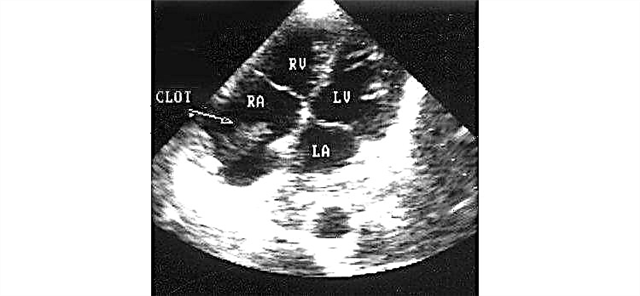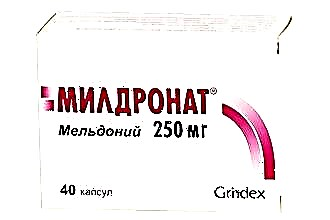Hypertension is a disease characterized by a constant increase in blood pressure. It practically does not respond to treatment, but constant medical supervision and the implementation of all recommendations can significantly improve the quality of life. In addition to drug therapy, it is necessary to know about possible contraindications for arterial hypertension.

Diet
A careful attitude to your health will allow not only to normalize the level of pressure, but also prevent possible complications.
In the course of research, it has been proven that unhealthy diet significantly increases the risk of developing hypertension. First of all, this concerns the abundance of fatty foods. These are some types of meat (pork, lamb), butter and dairy products with a high percentage of fat. Such a diet is rich in cholesterol, which, accumulating, forms atherosclerotic plaques on the walls of blood vessels, significantly narrowing the lumen of blood vessels.
In order to cleanse the vascular walls of cholesterol deposits, it is necessary to introduce foods rich in polyunsaturated acids and Omega-3 into the diet. These are sea fish, olive and sunflower oils.
An absolute contraindication for hypertension is increased salt intake. Lingering in the body, it provokes soft tissue edema and vasoconstriction. This is the main factor in increasing blood pressure. Patients suffering from hypertension are highly discouraged from introducing smoked meats, canned foods, salted fish into the diet.
In order to reduce the negative effects of salt on the body, it is necessary to eat enough foods rich in potassium and magnesium. These are bananas, raisins, tomatoes, seaweed and red peppers.
The diet of a patient suffering from arterial hypertension should not be poor in minerals. This is especially true of vitamin C, which strengthens the vascular wall. Failure to comply with this condition leads to its weakening, followed by a sharp fluctuation in blood pressure numbers. In order for food to receive the maximum amount of nutrients, vegetables and fruits should be subjected to minimal heat treatment.
Obesity of the patient is becoming one of the most common causes of hypertension. Therefore, nutrition should be balanced and aimed at regulating body weight. If the patient's body mass index exceeds the normal value, then doctors prescribe a fasting diet.
It implies the following rules:
- reducing the calorie content of foods;
- fractional meals at least 5 times a day;
- overeating is strictly prohibited, portions should be small;
- there should be no more than 9 hours between dinner and breakfast.
Many patients, trying to lose weight, sit on a rigid diet and dramatically lose large amounts of body weight. With hypertension, such weight loss is strictly contraindicated. The work of internal organs is disrupted, which negatively affects the work of blood vessels. There is a concept of physiological weight loss. It is 2 - 4 kg per month.
Elevated blood glucose levels can also be a risk factor for the development of arterial hypertension. It is for this reason that the use of large amounts of sweets is contraindicated in patients. In situations where blood glucose approaches the upper limit of the norm, the patient is transferred to a special diet that is relevant for diabetes.
As for drinks, in case of hypertension, the use of coffee and energy drinks is not recommended. The caffeine contained in them promotes vasoconstriction with a subsequent increase in pressure. Compliance with a diet in conjunction with the implementation of the doctor's recommendations will help to avoid the development of a hypertensive crisis and other serious complications.
Physical activity
Contraindication for arterial hypertension is both a sedentary lifestyle and increased physical activity.
Most often, vascular disease affects people with sedentary work, since with this lifestyle, stagnation develops in the systemic circulation. Therefore, it is very important to include moderate exercise in the daily routine. The ideal option in such a situation would be physiotherapy exercises. But it should be carried out under the strict supervision of an exercise therapy doctor.
 The list of prohibited activities for hypertension includes the following activities:
The list of prohibited activities for hypertension includes the following activities:
- Run. It is replaced by walking on uneven terrain.
- Power sports.
- Intensive training on simulators, treadmill. This is especially dangerous with arrhythmias and during an exacerbation of the disease.
- Sports games with increased physical activity (football, basketball, hockey).
It is very useful for hypertension to carry out daily morning exercises. This not only strengthens muscles and raises immunity, but also improves the functioning of the vascular system.
The complex of individual sports lessons is selected by a specialist individually after a complete examination of the patient. If during exercise the blood pressure rises, shortness of breath and headache appear, then the load is reduced. Classes continue to be conducted at the intensity at which the patient feels comfortable.
Quite a frequently asked question: is it possible to massage with arterial hypertension? The pathology itself is not a contraindication for this procedure. However, it is not recommended to do it in case of a hypertensive crisis and a few days after it, as well as in severe, 3 stages of the disease.
Another factor in the development of hypertension can be work activities associated with constant nervous tension. These are medical workers, teachers, people in leadership positions. In such a situation, it is recommended to carry out regular preventive treatment of diseases of the central nervous system with the use of sedatives.
In addition, hypertension develops in people whose work is associated with the rapid processing of a large amount of information. These are mobile operators, dispatchers. With such a flow and constant nervous tension, neurosis develops, provoking periodic rises in blood pressure. If you do not give this due attention and do not undergo a course of treatment, then there is a risk of the transition of an episodic rise in blood pressure to a chronic form.
Also for hypertensive patients it is dangerous and irregular, shift work schedule. Activity at night provokes a restructuring of the body's blood supply. This can lead to the development of arrhythmias and hypertension.
Adequate sleep is very important with chronic high blood pressure. Constant lack of sleep leads to a weakening of the body, a decrease in immunity, and a disruption in the work of blood vessels. Studies have shown that people whose sleep lasts less than 5 hours a day develop hypertension several times more often.
With arterial hypertension, travel with a sharp change in climate is contraindicated. These are trips south from central Russia, to hot countries. Also, long flights with a change of time zones are not recommended.
Bad habits
 Bad habits are an absolute contraindication for arterial hypertension. When alcohol is taken, the vascular lumen narrows. This, in turn, leads to an increase in blood pressure. Regular abuse of alcoholic beverages leads to chronically high numbers on the tonometer and the possible development of a hypertensive crisis.
Bad habits are an absolute contraindication for arterial hypertension. When alcohol is taken, the vascular lumen narrows. This, in turn, leads to an increase in blood pressure. Regular abuse of alcoholic beverages leads to chronically high numbers on the tonometer and the possible development of a hypertensive crisis.
Smoking also negatively affects the course of the disease, progressing its further development.Therefore, when the first signs of an increase in blood pressure appear, it is recommended to quit smoking as soon as possible. In order to facilitate this process, the following techniques are recommended.
- Medicines. They come in the form of tablets and patches. Most often, two types of drugs are used - causing aversion to nicotine and relieving addiction.
- Acupuncture. Exposure to certain points contributes to the fastest possible abandonment of a bad habit.
- Working with a psychologist. Special auto-trainings help to transfer addiction from nicotine addiction more easily.
In case of increased nervousness during the period of cessation of cigarettes, it is recommended to take light sedatives. They help reduce stress and focus on other activities.
They also resort to sedatives and the help of a psychologist in case of stress, nervous situation in the family and at work, and constant conflicts. They lead to the release of adrenaline, which increases blood pressure. This can lead to the development of hypertension or to the aggravation of an existing pathology.
It is generally accepted that arterial hypertension cannot be completely cured. But an attentive attitude to one's health, regular visits to a doctor and the fulfillment of all his appointments will help to significantly improve the patient's quality of life.
Standard recommendations for the prevention of hypertensive crisis are as follows:
- pressure control in the morning and evening (target level 120/80).
- diet with restriction of carbohydrates, animal fats, table salt; enriched with fiber, fruits and vegetables - to normalize body weight.
- Exercise therapy, regular physical activity.
- rejection of bad habits
Compliance with these points guarantees strong prevention and the absence of the risk of developing life-threatening conditions (stroke, myocardial infarction, exertional angina).



